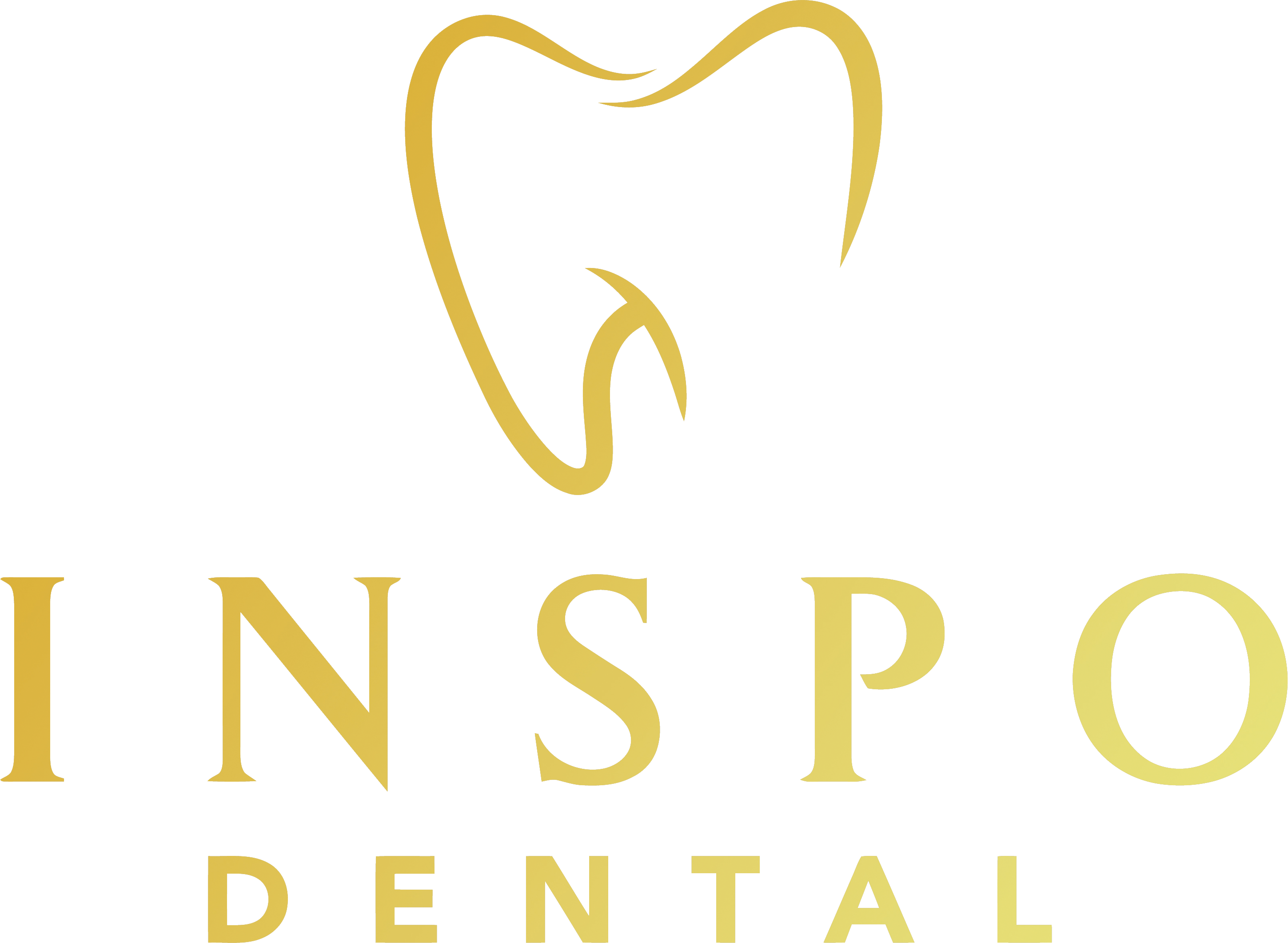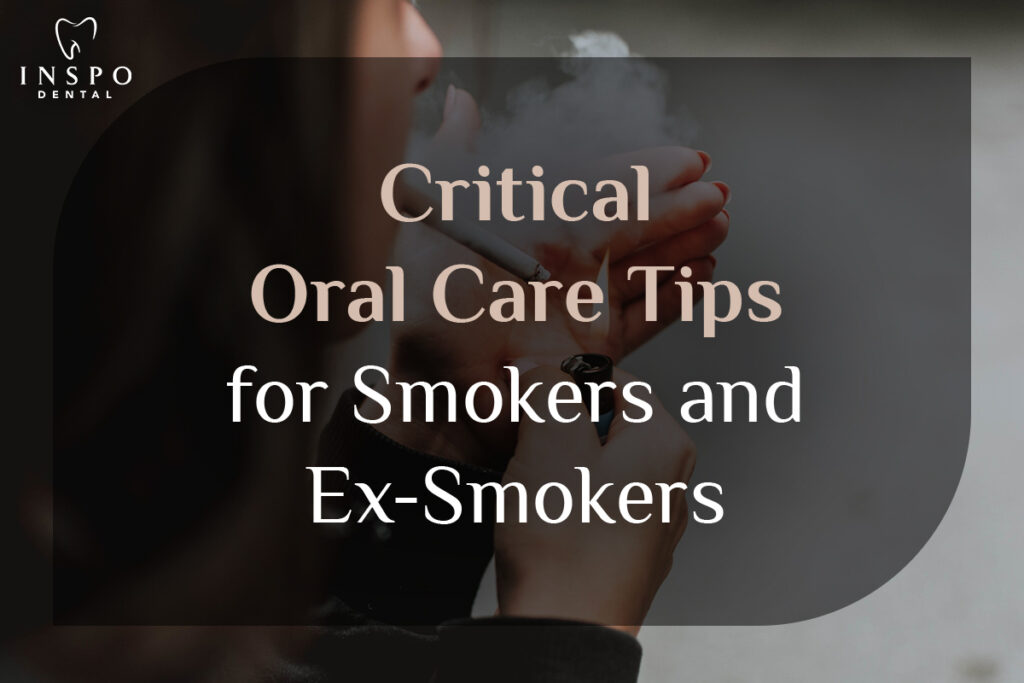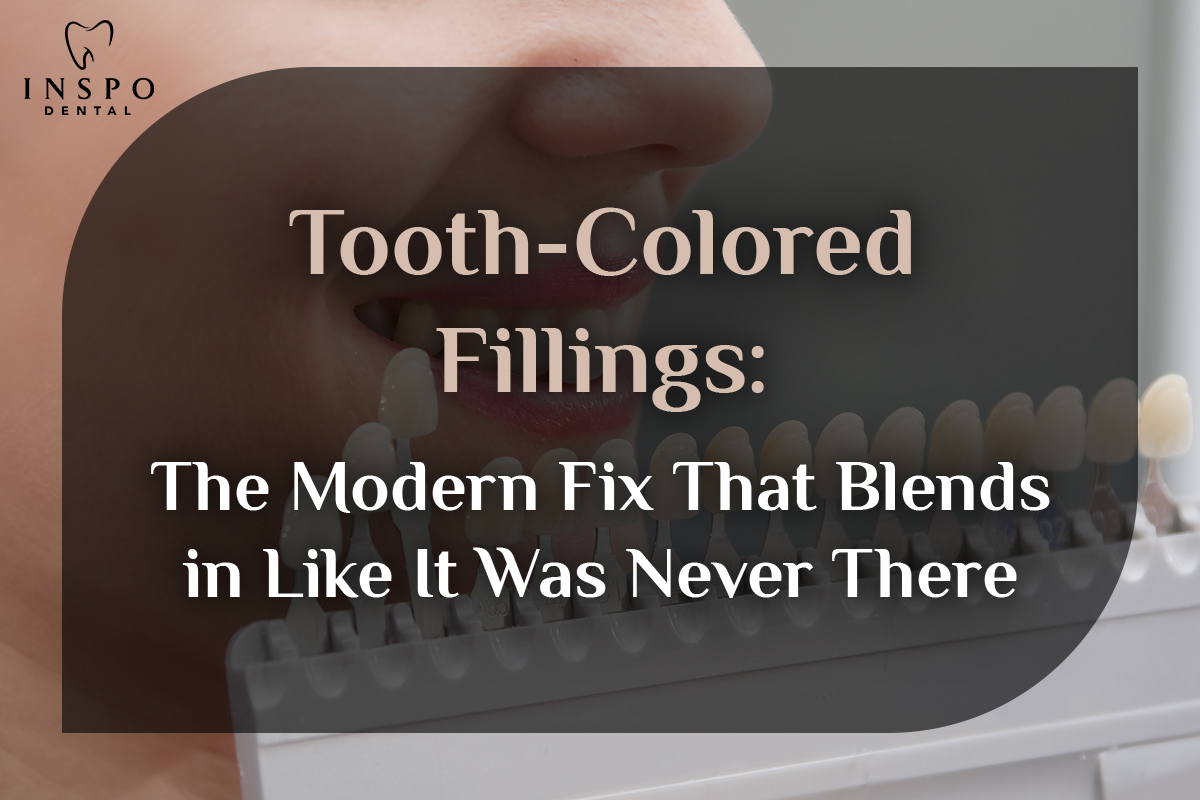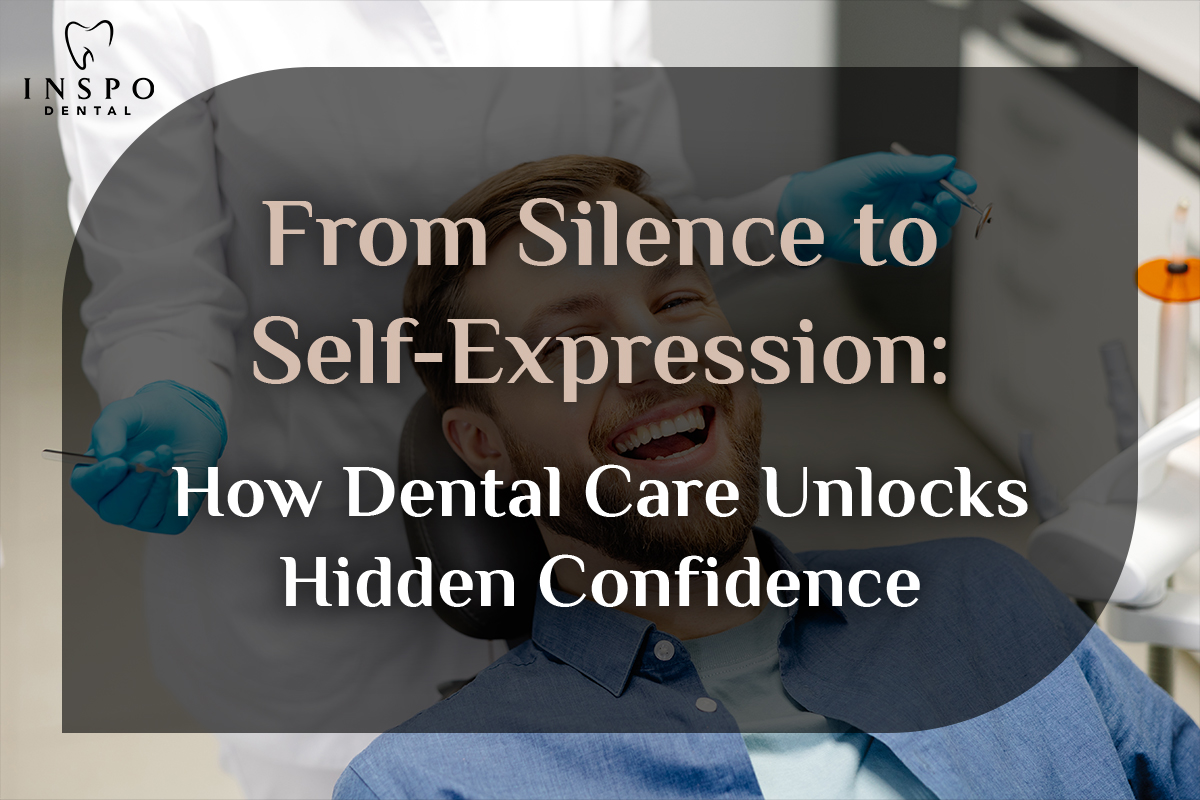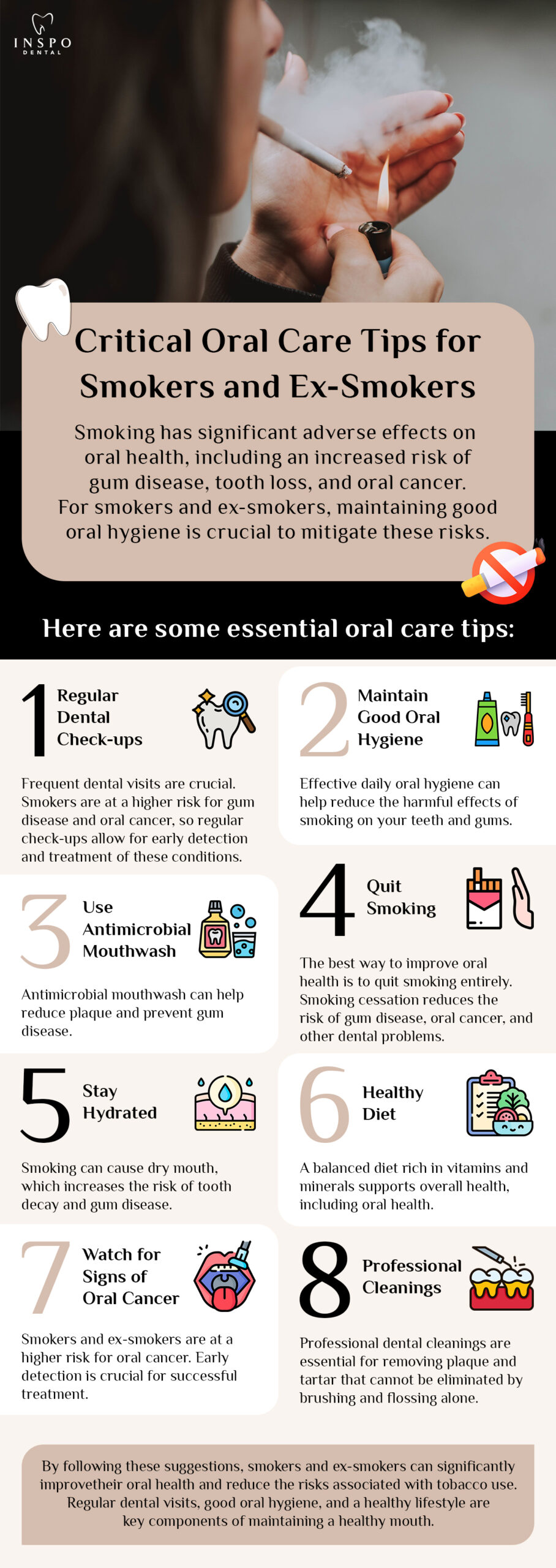
Maintaining good oral hygiene is critical for smokers and ex-smokers due to the increased risk of gum disease, tooth loss, and oral cancer associated with tobacco use. Regular dental check-ups are essential, with visits recommended at least twice a year to monitor for early signs of these conditions. Informing your dentist about your smoking history allows them to provide tailored advice and care.
Effective daily oral hygiene practices include brushing teeth at least twice a day with fluoride toothpaste, using a soft-bristled toothbrush to avoid gum irritation, and replacing the toothbrush every three months. Daily flossing is also crucial to remove plaque and food particles from between the teeth and under the gumline. Antimicrobial mouthwash can further reduce plaque and prevent gum disease; look for those containing chlorhexidine or essential oils for the best results.
Quitting smoking is the most impactful step for improving oral health, as it significantly reduces the risk of dental problems. Support for smoking cessation can be found through various programs, nicotine replacement therapies, and prescription medications, with healthcare providers offering personalized advice. Staying hydrated by drinking plenty of water helps combat dry mouth, a common issue for smokers that can lead to tooth decay and gum disease. Chewing sugar-free gum can also stimulate saliva production, while avoiding caffeinated and alcoholic beverages can help maintain moisture in the mouth.
A healthy diet rich in fruits and vegetables provides essential nutrients for healthy gums and teeth, while limiting sugary and acidic foods and drinks reduces the risk of tooth decay. Smokers and ex-smokers should also be vigilant for signs of oral cancer, such as lumps, sores, or white patches in the mouth, and report any persistent changes to their dentist or healthcare provider immediately.
Professional dental cleanings every six months, or more frequently if recommended, are important for removing plaque and tartar that cannot be eliminated by brushing and flossing alone. Discussing your smoking history with your dental hygienist can help them provide targeted advice and care. By following these tips, smokers and ex-smokers can significantly improve their oral health and reduce the risks associated with tobacco use. Regular dental visits, good oral hygiene, and a healthy lifestyle are key components of maintaining a healthy mouth.
Understanding the Impact of Smoking on Oral Health
Smoking reduces blood flow to the gums, which can lead to periodontal disease. This condition not only affects the gums but can also lead to tooth loss and damage to the bone structure supporting the teeth. Additionally, smoking can delay healing after oral surgery or dental procedures. It’s important to be aware of these impacts to take preventive measures and seek timely dental care.
Implementing a Rigorous Oral Hygiene Routine
Smokers should use toothpaste specifically formulated to combat the effects of smoking. These toothpastes can help remove nicotine stains and reduce bad breath associated with smoking. Using a tongue scraper daily can also help remove bacteria and reduce bad breath. Incorporating these additional steps into your routine can further enhance oral hygiene and mitigate the negative effects of smoking.
Being Proactive About Oral Cancer Screenings
Since smokers are at a higher risk for oral cancer, it’s advisable to undergo regular oral cancer screenings. These screenings can be part of your routine dental visits. Early detection of oral cancer significantly increases the chances of successful treatment. Dentists use special lights and dyes to detect abnormal tissues in the mouth that might not be visible to the naked eye.
Using Saliva Substitutes
Smoking can lead to dry mouth, which increases the risk of tooth decay and gum disease. Saliva substitutes or mouthwashes designed to treat dry mouth can help maintain moisture levels in the mouth, protecting against these conditions. Products containing xylitol can also stimulate saliva production and provide additional protection against cavities.
Regular Professional Cleanings
Given that smoking can lead to more rapid plaque and tartar buildup, more frequent professional cleanings might be necessary. These cleanings help remove the buildup that cannot be managed by regular brushing and flossing, reducing the risk of gum disease and tooth decay.
Adopting a Holistic Approach to Health
Oral health is interconnected with overall health. Smokers should adopt a holistic approach to improve their general health, which will, in turn, benefit their oral health. This includes regular exercise, a balanced diet rich in vitamins and minerals, staying hydrated, and avoiding excessive alcohol consumption. Good general health practices support the immune system, which helps in maintaining healthy gums and teeth.
Utilizing Technological Aids
Consider using electric toothbrushes and water flossers. These tools can be more effective at removing plaque and maintaining gum health compared to manual brushing and traditional flossing. Electric toothbrushes often come with timers and pressure sensors to ensure that you brush effectively without damaging your gums.
Educating Yourself and Staying Informed
Stay informed about the latest research and recommendations for oral health, especially as they pertain to the effects of smoking. Resources like the American Dental Association (ADA), Centers for Disease Control and Prevention (CDC), and Mayo Clinic offer valuable information and updates on maintaining oral health.
Maintaining oral health as a smoker or ex-smoker involves a combination of rigorous hygiene practices, regular professional care, and proactive lifestyle choices. Understanding the comprehensive impact of smoking on oral health is essential. Smoking reduces blood flow to the gums, contributing to periodontal disease, which can result in tooth loss and damage to the supporting bone structure. Moreover, smoking can delay healing after dental procedures, making it crucial for smokers to be extra vigilant about their oral care.
A rigorous oral hygiene routine is critical. Smokers should use toothpaste specifically designed to combat the effects of smoking, such as those that help remove nicotine stains and reduce bad breath. Incorporating a tongue scraper into daily routines can also help eliminate bacteria and improve breath. Additionally, using antimicrobial mouthwash can reduce plaque and prevent gum disease.
Regular oral cancer screenings are highly recommended for smokers and ex-smokers due to their increased risk. These screenings, part of routine dental visits, involve using special lights and dyes to detect abnormal tissues in the mouth early, significantly improving treatment outcomes.
Saliva substitutes or mouthwashes designed to treat dry mouth can help combat the reduced saliva production caused by smoking, protecting against tooth decay and gum disease. Products containing xylitol can stimulate saliva production and provide further protection against cavities.
Professional cleanings should be scheduled more frequently for smokers, as they tend to accumulate plaque and tartar more rapidly. These cleanings help remove buildup that regular brushing and flossing cannot address, reducing the risk of gum disease and tooth decay.
Adopting a holistic approach to health, including regular exercise, a balanced diet rich in vitamins and minerals, staying hydrated, and avoiding excessive alcohol consumption, supports overall health and, consequently, oral health. Good general health practices bolster the immune system, aiding in maintaining healthy gums and teeth.
Technological aids like electric toothbrushes and water flossers can be more effective at removing plaque and maintaining gum health than manual brushing and traditional flossing. Electric toothbrushes often come with timers and pressure sensors, ensuring effective brushing without damaging gums.
Staying informed about the latest research and recommendations for oral health, particularly concerning the effects of smoking, is also crucial. Trusted resources like the American Dental Association (ADA), the Centers for Disease Control and Prevention (CDC), and the Mayo Clinic offer valuable information and updates on maintaining oral health.
Beyond the basics of oral hygiene and regular dental visits, there are additional strategies that smokers and ex-smokers can implement to further protect their oral health. One critical aspect is the management of dental hygiene products. Opt for fluoride toothpaste that specifically targets smokers, helping to combat the stains and bad breath associated with tobacco use. Regular use of dental floss and interdental brushes can remove plaque from areas that are hard to reach with brushing alone.
Stress Management and Its Impact on Oral Health
Smoking is often associated with stress relief, but quitting smoking can initially increase stress levels, potentially impacting oral health. Stress can lead to teeth grinding (bruxism), which can cause tooth wear and jaw problems. Incorporate stress management techniques such as meditation, yoga, and deep-breathing exercises to mitigate these effects. These practices can help reduce overall stress and its impact on your oral health.
The Importance of Hydration
Staying well-hydrated is essential for maintaining saliva production, which is critical for neutralizing acids produced by bacteria in the mouth and for washing away food particles. Smokers often experience dry mouth, which can exacerbate dental problems. Drinking plenty of water throughout the day helps keep the mouth moist and reduces the risk of cavities and gum disease.
Nutritional Considerations
A diet rich in vitamins and minerals supports both overall and oral health. Vitamins C and D are particularly important. Vitamin C helps maintain the integrity of gums, while vitamin D is essential for calcium absorption, crucial for strong teeth and bones. Incorporate foods like leafy greens, nuts, seeds, and dairy products into your diet to ensure you’re getting these essential nutrients. Avoiding excessive sugar and acidic foods can also help prevent tooth decay and enamel erosion.
Using Dental Sealants
Dental sealants can provide an additional layer of protection for teeth. These thin, protective coatings applied to the chewing surfaces of the back teeth (molars) can prevent decay by sealing out food and plaque. Discuss with your dentist whether sealants are a good option for you, especially if you have a history of cavities.
Professional Teeth Whitening
Smoking can lead to significant tooth discoloration. Professional teeth whitening treatments can help restore the natural color of your teeth. While over-the-counter whitening products are available, professional treatments administered by a dentist are more effective and safer, particularly for those with sensitive teeth.
Regular Use of Fluoride Treatments
In addition to fluoride toothpaste, professional fluoride treatments can strengthen tooth enamel and help prevent decay. These treatments, available at your dental office, can provide a higher concentration of fluoride than over-the-counter products.
Behavioral Counseling and Support
For those struggling to quit smoking, behavioral counseling and support groups can be invaluable. These resources offer strategies to deal with cravings and withdrawal symptoms, providing a supportive environment to discuss challenges and successes. Programs like the American Lung Association’s Freedom From Smoking program offer structured support to help individuals quit smoking for good.
Oral Cancer Screening and Awareness
Smokers and ex-smokers should be particularly vigilant about oral cancer. Regular screenings by a dentist can help detect early signs of oral cancer, significantly improving treatment outcomes. Self-examinations at home can also be beneficial. Look for unusual changes in the mouth, such as lumps, sores, or white patches, and report any persistent issues to your dentist immediately.
Utilizing Chewing Gums and Mints
Chewing sugar-free gum or mints can help stimulate saliva production, reducing dry mouth symptoms and helping to clean the teeth between meals. Xylitol-containing gums and mints are especially beneficial as xylitol has been shown to reduce tooth decay.
Smoking Cessation Programs and Resources
Utilize Support Systems: Quitting smoking is one of the most significant steps for improving oral and overall health. Utilize resources such as counseling, support groups, and smoking cessation programs. Many organizations, such as the American Lung Association, offer structured programs to help individuals quit smoking through a combination of behavioral therapy and medication.
Nicotine Replacement Therapy (NRT): NRT products such as patches, gums, and lozenges can help manage withdrawal symptoms and reduce the urge to smoke. These products provide a lower, more controlled dose of nicotine, making it easier to wean off smoking.
Advanced Oral Hygiene Practices
Electric Toothbrushes and Water Flossers: Invest in electric toothbrushes, which can be more effective at removing plaque and maintaining gum health compared to manual brushes. Water flossers can help clean between teeth and along the gum line, especially for individuals with dental work that makes traditional flossing difficult.
Professional Dental Products: Use high-quality dental products recommended by your dentist. This may include prescription-strength fluoride toothpaste, antimicrobial mouth rinses, and specialized products designed to combat dry mouth.
Diet and Nutrition for Oral Health
Anti-Inflammatory Foods: Incorporate anti-inflammatory foods such as leafy greens, berries, nuts, and fatty fish into your diet. These foods can help reduce inflammation in the gums and support overall oral health. Harvard Health provides a comprehensive guide on anti-inflammatory foods.
Calcium and Vitamin D: Ensure adequate intake of calcium and vitamin D to maintain strong teeth and bones. Dairy products, fortified plant-based milks, and leafy greens are excellent sources of calcium, while vitamin D can be obtained from sunlight exposure and foods such as fatty fish and fortified cereals.
Specialized Dental Treatments
Fluoride Treatments: Professional fluoride treatments provided by your dentist can strengthen tooth enamel and prevent decay. These treatments are particularly beneficial for smokers, who are at a higher risk for cavities and enamel erosion.
Dental Sealants: Consider getting dental sealants applied to the chewing surfaces of your molars. Sealants create a protective barrier that prevents food and bacteria from getting stuck in the grooves of your teeth, reducing the risk of decay.
Stress and Oral Health
Address Bruxism: Smoking cessation can sometimes increase stress levels, leading to bruxism (teeth grinding). If you experience bruxism, discuss with your dentist the possibility of using a night guard to protect your teeth from grinding damage.
Stress Management Techniques: Practice stress management techniques such as mindfulness meditation, yoga, and deep-breathing exercises. These practices not only reduce stress but also promote overall well-being, indirectly benefiting oral health.
Regular Oral Cancer Screenings
Self-Examinations: Conduct regular self-examinations to look for signs of oral cancer, such as lumps, sores, or white patches in your mouth. Early detection is critical for successful treatment. The Oral Cancer Foundation provides guidelines on how to perform these self-checks.
Professional Screenings: Ensure your dentist conducts regular oral cancer screenings during your visits. These screenings involve a thorough examination of your mouth, throat, and neck to detect any abnormalities early.
Maintaining Overall Health
Hydration and Saliva Production: Drink plenty of water to keep your mouth hydrated and promote saliva production. Chewing sugar-free gum can also help stimulate saliva, which is crucial for neutralizing acids and washing away food particles.
Oral Health Education: Stay informed about the latest research and recommendations for oral health, particularly as they relate to smoking and its effects. Trusted sources like the American Dental Association (ADA), the Centers for Disease Control and Prevention (CDC), and the Mayo Clinic offer valuable information.
By implementing these comprehensive strategies, smokers and ex-smokers can significantly improve their oral health and reduce the risks associated with tobacco use. Regular dental visits, meticulous oral hygiene, a healthy diet, stress management, and quitting smoking altogether are essential components of maintaining a healthy mouth and overall well-being.
